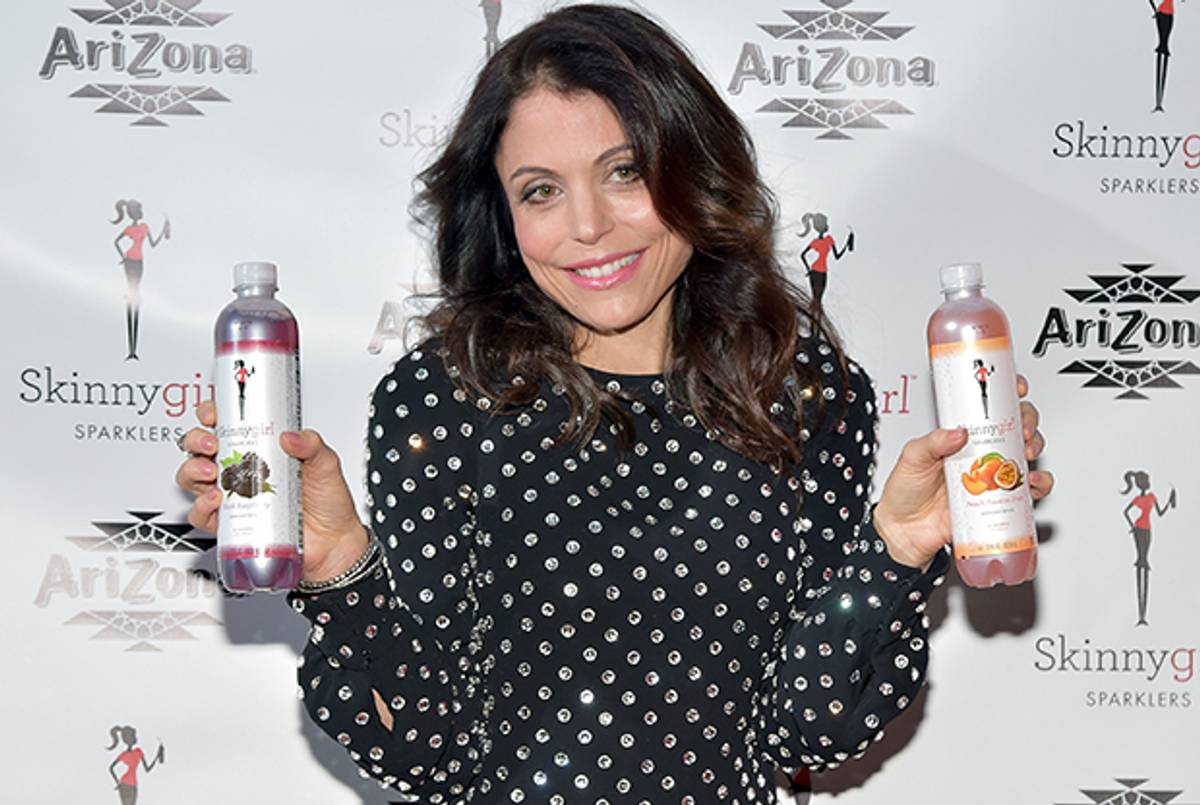
As you’ve probably heard, Bethenny Frankel, fresh from her acrimonious divorce and subsequent custody battle and the cancellation of her daytime talk show, the unimaginatively named Bethenny, has, in the immortal words of Helen Lawson in Valley of the Dolls, come crawling back to The Real Housewives of New York, the show that first made her name as a tenacious and love-challenged businesswoman determined to stop at nothing to achieve her dream of selling low-calorie alcoholic beverages and snack foods to a rapacious horde of slightly overweight women.
The Bethenny we’ll see on our screens this April, however, will be a kinder, gentler, less markedly sarcastic Bethenny, at least if she has anything to do with it. According to the ever-reliable Page Six (and I’m not saying that sarcastically; the venerable gossip column remains the only part of the New York Post that I absolutely believe to be based on actual, factual reporting) Frankel has hired a team of “personality coaches” to help her turn down her sometimes abrasive personality, and on the whole come off as less harsh, more likable, and a whole other slew of the demure adjectives that one normally finds in the character breakdowns for female roles on unchallenging multi-cam sitcoms. (Another favorite: “stunningly beautiful, even without makeup.”)
Here’s the thing though—the whole reason Bethenny became the breakout star of the New York Housewives (and arguably, of the whole franchise, at least until Lisa Vanderpump came wobbling in on her pink Louboutins) was because she was sarcastic, and mean, and therefore, funny. In her talking heads—and increasingly, directly to the faces of her fellow housewives—Bethenny came off as a normal, relatively intelligent person who didn’t take herself too seriously, a voice of reason who, virtually alone, was able to effectively skewer the baritone hauteur of Countess LuAnn, the unpredictable craziness of Ramona Singer, and most of all, the overall hideousness of her former best friend turned implacably butthurt enemy Jill Zarin, who is the kind of archetype of a Jewish woman the anti-Semites would try to get on TV if they knew what they were doing (and who really makes you wonder just who Andy Cohen is working for, if you didn’t know better): shrill, rapacious, money and status-obsessed, the kind of person who—in writing! In her book!—suggests reserving sexual favors for when your husband buys you expensive jewelry.
Compared to such a walking, breathing stereotype, Bethenny (whose father is Jewish and whose mother converted to Judaism, but who doesn’t identify as such, probably due to her admittedly toxic relationship with her family) was a breath of fresh air: independent, self-deprecating, and most of all, determined to make it on her own. A real New York woman, not a “real” one, in all her neurotic, snarky glory. By all means, take it down a notch—people mature and get less judgmental with age. But I for one hope she doesn’t lose it entirely. It might make her more “likable,” but it won’t make her more loved.
Rachel Shukert is the author of the memoirs Have You No Shame? and Everything Is Going To Be Great,and the novel Starstruck. She is the creator of the Netflix show The Baby-Sitters Club, and a writer on such series as GLOW and Supergirl. Her Twitter feed is @rachelshukert.